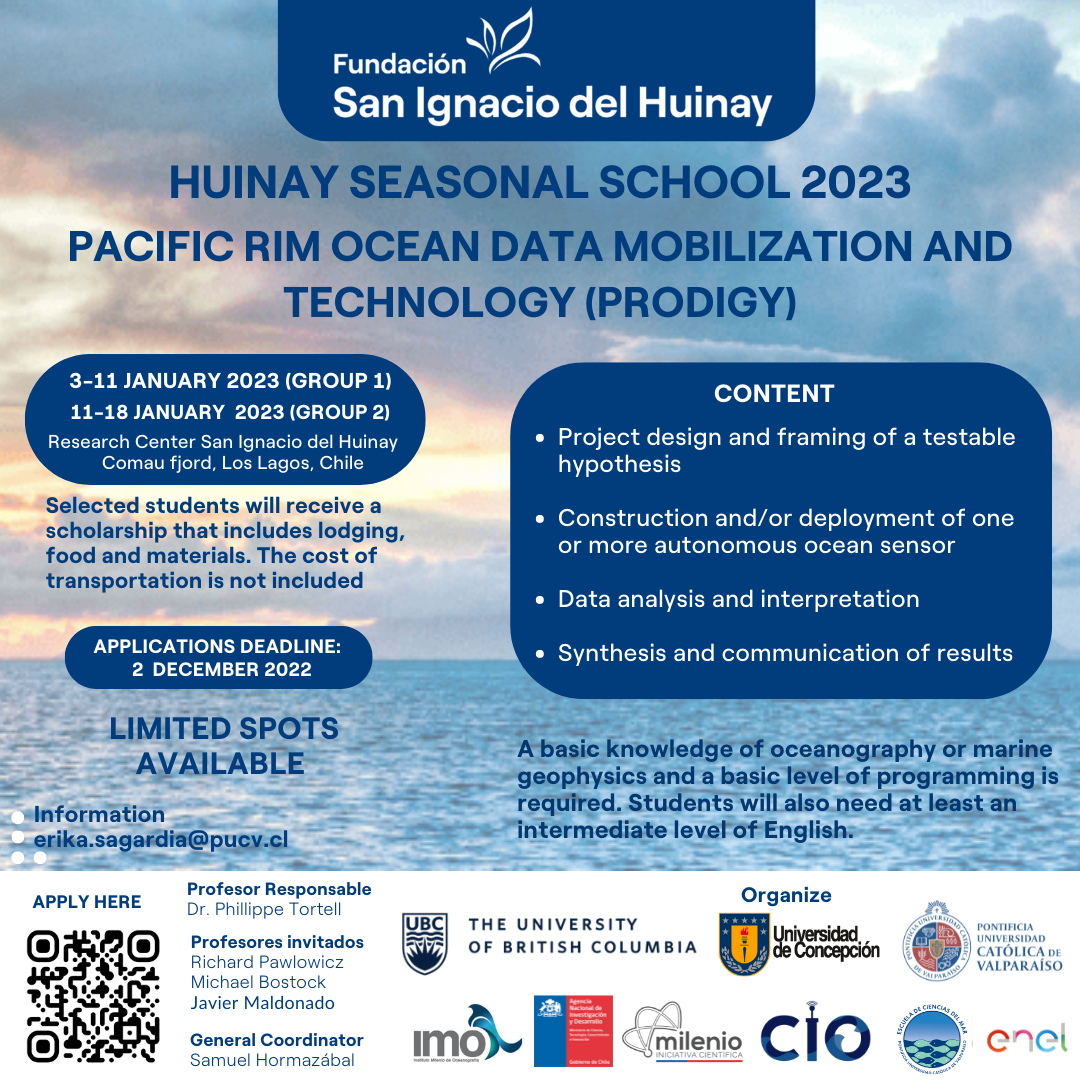This intensive field course will provide students with an immersive and cross-cultural experience in the deployment of autonomous ocean sensors and the analysis of resulting data using advanced statistical and data science approaches. Students will have access to a variety of sensors that will be used to examine fundamental oceanographic and geophysical processes through self-directed projects.
The course will be primarily taught in English.

The course will be open to senior undergraduate students, professionals and graduate students in areas related to earth sciences (eg. oceanography, geophysics, computer science and statistics).
The applicant should send to the organizing committee
- Motivation letter (1 page)
- Curriculum vitae
- Certificate of regular student of related careers
- Undergraduate students must attach to their application a recommendation letter from their tutor professor or thesis/memorial guide
- A basic knowledge of oceanography or marine geophysics and a basic level of programming is required. Students will also need at least an intermediate level of English.